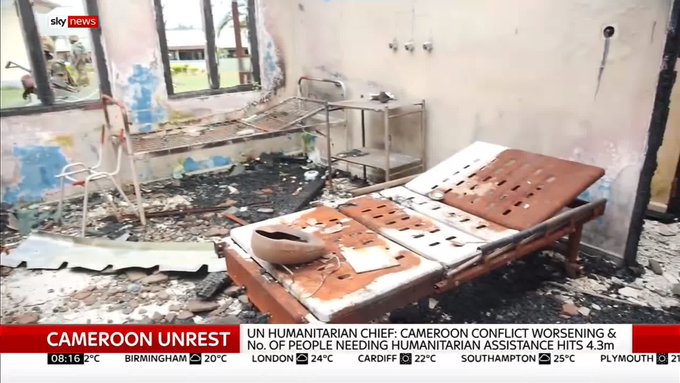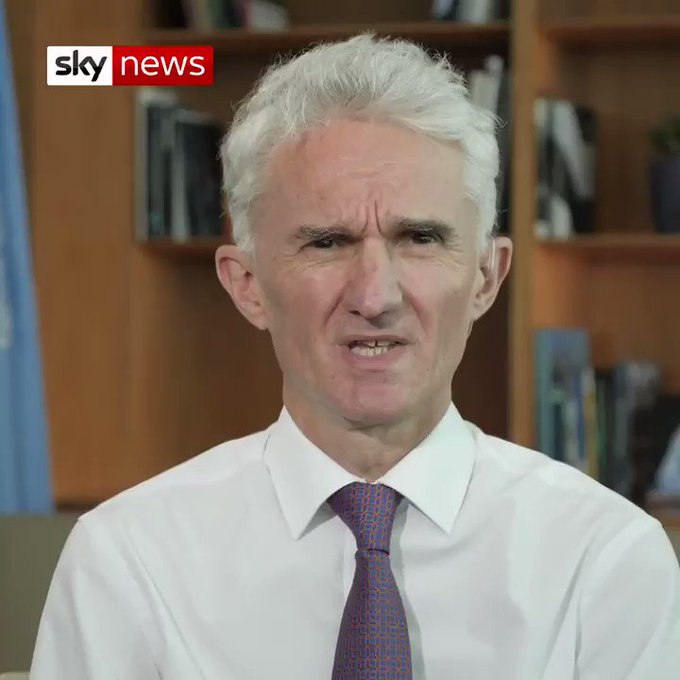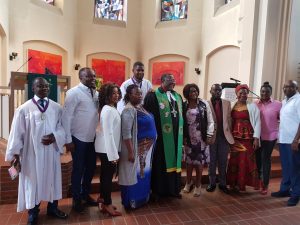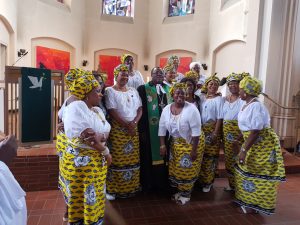17, July 2019
US House passes resolution condemning Trump’s ‘racist’ tweets 0
The US House of Representatives has passed a resolution officially condemning President Donald Trump’s racist comments against four minority Democratic congresswomen.
The resolution passed on Tuesday denounces Trump for his “racist comments that have legitimized fear and hatred of New Americans and people of color.”
Referring to Representatives Alexandria Ocasio-Cortez of New York, Ilhan Omar of Minnesota, Rashida Tlaib Michigan and Ayanna Pressley Massachusetts, Trump wrote on Twitter Sunday, “Why don’t they go back and help fix the totally broken and crime infested places from which they came.”
So interesting to see “Progressive” Democrat Congresswomen, who originally came from countries whose governments are a complete and total catastrophe, the worst, most corrupt and inept anywhere in the world (if they even have a functioning government at all), now loudly……
Three of the four Representatives were born in the United States, but all are US citizens. Omar, a Muslim congresswoman, was born in Somalia’s capital Mogadishu and immigrated to the US as a refugee.
Speaking on the House floor prior to Tuesday vote, House Speaker Nancy Pelosi urged both Democratic and Republican lawmakers to “join us in condemning the president’s racist tweets.”
“To do anything less would be a shocking rejection of our values and a shameful abdication of our oath of office to protect the American people.”
Meanwhile, a growing number of Republicans, after initial hesitation, began to openly criticize Trump.
Texas Representative Will Hurd, for example, described Trump’s tweets as “racist and xenophobic” and “unbecoming of the leader of the free world.” Also, after one Ohio Representative, Mike Turner, called Trump’s words “racist,” four other Republicans from the same US state joined him in condemning the comments.
Nonetheless, some other Republicans continued to support Trump, with Representative Dan Meuser, Republican of Pennsylvania saying, “What has really happened here is that the president and his supporters have been forced to endure months of allegations of racism.”
“This ridiculous slander does a disservice to our nation,” Meuser said.
Trump, in response to the vote, said on Twitter that “those Tweets were NOT Racist,” adding, “I don’t have a Racist bone in my body!”
Source: Presstv






















 @SkyNews
· Jul 12, 2019
“The international community is looking the other way.” @AlexCrawfordSky tells #Sunrise there’s been ongoing conflicts in Cameroon with separatists demanding independence, that’s led to “brutality” on both sides – “kidnapping rife, corruption rife”.http://po.st/RQkaG5
@SkyNews
· Jul 12, 2019
“The international community is looking the other way.” @AlexCrawfordSky tells #Sunrise there’s been ongoing conflicts in Cameroon with separatists demanding independence, that’s led to “brutality” on both sides – “kidnapping rife, corruption rife”.http://po.st/RQkaG5


























17, July 2019
Internet a distant dream for many in oil-rich Equatorial Guinea 0
Equatorial Guinea is awash in oil, although little of the wealth has trickled down to the poor.
Yet one of the most glaring inequalities here is access to the internet.
Other parts of the world are pushing ahead with plans for fast, free — or at least low-cost — universal online access. Equatorial Guinea, a small reclusive state on the coast of central-western Africa, seems stuck in a timewarp.
With rare exceptions, sluggish speeds and stratospheric bills are the daily lot of people who want to search for information on the web, use social media, email, messaging and the myriad of other internet activities that are routine elsewhere.
“The internet in Equatorial Guinea is still a big-money business, reserved for those who can afford it,” said Mboro Mba, 35, seated on the ground behind a hotel as he tried to hook into a free wi-fi service with his smartphone.
Equatorial Guinea has the most expensive internet in the world after Zimbabwe, according to a list published this year by Ecobank, a pan-African bank.
One gigabyte of mobile data — roughly equivalent to watching an hour of television on Netflix — costs an eye-watering $35 dollars (31 euros).
By comparison, the average monthly pay of a manual worker or restaurant waiter in Equatorial Guinea is between 100,000-150,000 CFA francs ($170-260, 150-230 euros).
“For 2,000 CFA francs (3.40 euros), I can’t even download an 80-second video,” a local journalist told colleagues from central Africa who had come to Malabo to cover a regional meeting and found themselves caught out by internet problems.
“You really have to be patient to work with the internet in this country,” said a visitor from the Republic of Congo, unsuccessfully trying to send files to his editor.
The barriers to internet access here are so high that the International Telecommunication Union (ITU), a UN agency, estimates that just a quarter — 26 percent — of Equatorial Guineans go online.
The authorities have set up a “free, public internet network” along the Paseo Maritimo, a seafront six kilometres (3.5 miles) long in Malabo that is also used for sporting activities and leisurely strolls.
“I come here almost every evening to talk on WhatsApp to my mother who is in Spain,” says Filomena, 32, a clothes vendor.
“I don’t have the money to have an internet connection, so I come here often with my friends to use the wi-fi,” schoolboy Jorge Obiang says, leaning against a tree with several young companions, all glued to their screens.
A former Spanish colony, Equatorial Guinea is nominally one of the richest states in Africa thanks to oil income.
By next month, its president, Teodoro Obiang Nguema, will have ruled with an iron fist for 40 years — the longest tenure of any African leader alive today.
He has long been criticised for corruption within the regime and lack of openness to the rest of the world.
The slow service is especially paradoxical since “the country is situated in the Gulf of Guinea and so has access to a number of seabed cables”, said Julie Owono of Internet Sans Frontieres (Internet Without Borders), an NGO.
Equatorial Guinea — consisting of an island where Malabo lies and a forested territory on the African mainland that hosts trading capital Bata — is connected to three undersea fibre optic cables supplying internet service.
In neighbouring Gabon, internet access is five times less expensive on the scale drawn up by Ecobank.
– No competition –
The sky-high price of the internet “is explained by the very strong presence of the state (telecom) company on the market and lack of competition,” Owono said.
“Everything here is centralised, political decisions depend on one person, or a family, and it is difficult to establish a competitive market.”
The state telecoms agency GITGE, which sets tariffs, declined to respond to AFP’s questions.
Another disincentive for competition is internet blackouts ordered by those in power, she said.
In November 2017, on the eve of parliamentary elections, access to WhatsApp was blocked and social media became unavailable for five months.
“We’re living in the information era — the government is applying an enormous brake,” said Owono.
AFP